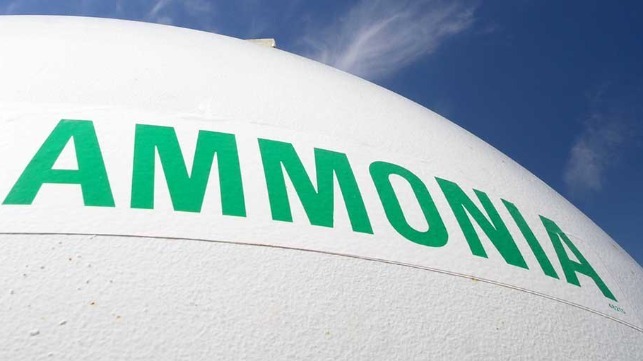23 Major Maritime Stakeholders Launch Ammonia Bunkering Study

New hydrogen and ammonia fuel partnership announcements are becoming as common as long-term charters and vessel sales, but a new joint study group that debuted Friday is more significant than most.
Twenty-three well-known enterprises - including ABS, DNV and ClassNK - have entered into a memorandum of understanding on a joint study of common issues in the use of ammonia as a marine fuel.
The group includes firms from a range of sectors including energy, mining, power utilities, chemical, terminal, shipping, shipbuilding, manufacturing, bunkering, and classification organizations.
“Ammonia is a fuel with significant potential for marine applications and ABS is committed to supporting its safe adoption by the industry. It offers shipowners and operators a zero-carbon tank-to-wake emissions profile but is not without challenges," said ABS Chairman, President and CEO Christopher J. Wiernicki. "This kind of cross-industry collaboration is vital if we are to better understand the risks and the enhanced safety requirements created by alternate fuels."
The 23 founding signatories are a who's who of the maritime, commodity and energy industries, including ABS, ClassNK, DNV, Equinor, Total (now TotalEnergies), Fortescue, Anglo American, Genco, Jera, K-Line, MAN, Mitsui E&S, Trafigura, Vale, Uniper and Itochu, among others.
The study will examine (1) safety assessments of NH3 fueled vessels; (2) safety assessments of NH3 bunkering; (3) NH3 fuel specifications; and (4) the net CO2 emissions of NH3 production. The working group plans to draw on the expertise of some NH3 producers, international organizations, and port authorities and regulators in potential bunkering countries.

that matters most
Get the latest maritime news delivered to your inbox daily.
"Ammonia is already a globally traded and transported commodity, but for it to be widely accepted as a marine fuel we need to help demystify the risks and safety measures needed so that they are understood by policymakers and the maritime industry," said Rasmus Bach Nielsen, the global head of fuel decarbonisation at Trafigura.
The purpose of the study also aims to support the development of ammonia-fueled vessels and the development of a worldwide supply chain for ammonia, led by Itochu and other partners. Itochu has commercial ambitions to develop ammonia bunkering facilities in Japan and in Singapore, one of the world's primary marine fuel hubs.
